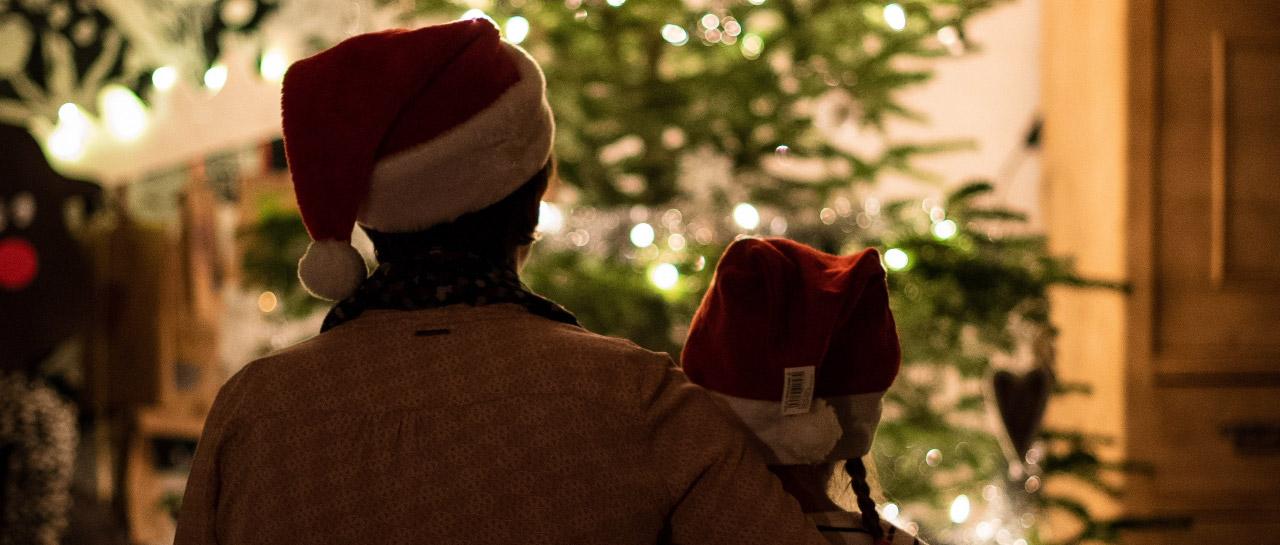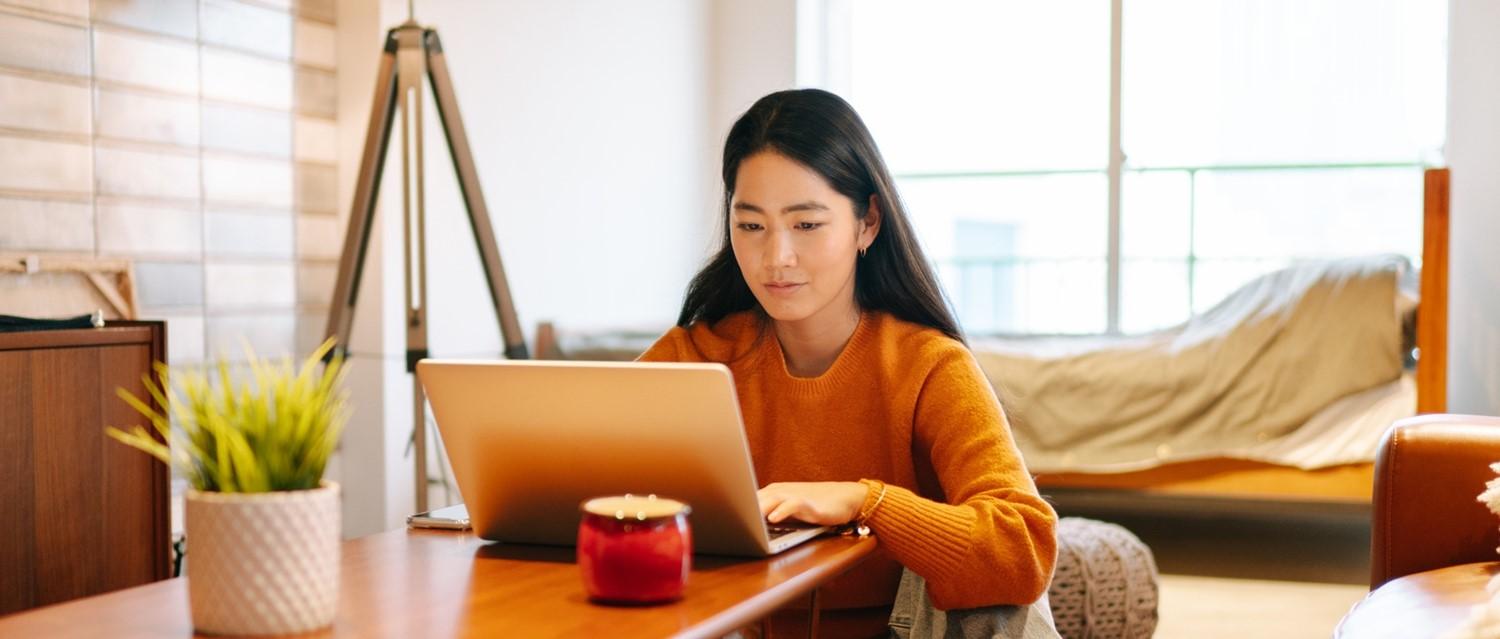
COVID-19: how to stay safe this Christmas
Peer reviewed by Dr Colin Tidy, MRCGPLast updated by Dr Sarah Jarvis MBE, FRCGPLast updated 1 Dec 2021
- DescargarDescargar
- Compartir
Christmas is just around the corner, and after it was effectively cancelled last year courtesy of the pandemic, hopes are high for more festive fun this time around. But COVID-19 hasn't gone away, and this festive season it's still really important to make sure we're being 'COVID-safe' and mitigating the risks of the virus as much as possible.
En este artículo:
We all know about the importance of socially distancing, wearing masks and washing our hands as often as possible. This advice has been drummed into us over the last 18 months, and infection rates are currently even higher than they were a year ago. While the spectacular success of the vaccine rollout means even vulnerable people are much less likely to become severely unwell, no vaccine offers 100% protection.
So what other steps can you take to have a COVID-safe Christmas? Martin Michaelis, a professor of molecular medicine at the University of Kent, and Jade Pallett, microbiologist at sanitiser brand Zoono, tell us more.
Seguir leyendo
Squeaky clean
As well as sticking with the 'Hands, Space, Face' guidance of the last year, both Michaelis and Pallett say it's important to clean surfaces regularly to stop the spread of the virus.
"Keep on top of cleaning high touch point areas within your household, such as door handles (internal and external), toilet flushes, taps and light switches," Pallett explains. "This will help protect members of your household and your Christmas guests during the festive period."
Let some air in
Michaelis adds that proper ventilation can also help prevent the spread of coronavirus.
"You can follow distancing rules, abstain from physical contact, wear face masks as much as possible, wash your hands, clean surfaces, and make sure that rooms are regularly ventilated by opening windows or doors," he says.
"You do not want to have stuffy rooms, because virus-loaded aerosols accumulate over time and increase the transmission risk. Since COVID-19 can also be transmitted via touching contaminated surfaces, you also want to avoid many people touching the same things, and regularly clean surfaces.
"You do not want to have bowls with crisps or other food that different people touch with their hands. If you have common meals, everything should remain separated as much as possible."
Seguir leyendo
Short and sweet
The extremely small (under 100 micrometre) aerosol droplets emitted by someone with COVID-19 when they breathe or talk are much lighter than the droplets of about 300 micrometres produced when they cough or sneeze.
These aerosol droplets are now known to hang around in the air for hours, becoming more concentrated in the vicinity of the infected person. So reducing the time people spend together, as well as concentrating on ventilation, are key.
Because these droplets are so tiny and light, they are easily dispersed by the slightest air current. The ultimate way to reduce your risk while meeting people is to hold your gathering outside (a tent is fine as long as it's not completely enclosed - keep one or two sides open for through-draught). This hugely reduces the concentration of aerosol droplets, which makes COVID-19 infection much less likely. Failing this, keep windows and doors open to increase ventilation and disperse the droplets.
Baby, it's cold outside
"Spreading chairs out around the dining table and perhaps having more than one dining table will help reduce the spread of COVID-19," Pallett adds. "It is also recommended for one person (with clean hands) to serve dinner in one area, rather than laying the food out in the centre of the dining table to avoid close contact and multiple hands touching serving implements and bowls."
Selección de pacientes para COVID-19

Tórax y pulmones
Protectores: ¿cómo pueden mantenerse a salvo las personas vulnerables al finalizar las restricciones?
Para miles de personas que llevan un año y medio protegidas, el fin de las restricciones oficiales de COVID-19 significa el comienzo de un nuevo periodo angustioso. Sin consejos oficiales para las personas de mayor riesgo, muchos se sienten abandonados, y algunos, deliberadamente en peligro. Los expertos aconsejan cómo sobrellevarlo hasta que lleguen las dosis de refuerzo.
por Ellie Broughton

Tórax y pulmones
COVID largo
La mayoría de las personas con infección por COVID-19 (infección por CoV-2 del SRAS) se sienten mejor a los pocos días o semanas y se recuperan completamente a las 12 semanas de la infección. Sin embargo, algunas personas presentan síntomas continuos que permanecen durante semanas, meses o más tiempo, lo que suele denominarse "COVID larga". Para algunos, estos efectos a largo plazo de la COVID-19 pueden ser debilitantes. Estos efectos pueden ser muy diferentes de una persona a otra, y parece probable que existan diferentes "tipos" de COVID largo, o diferentes síndromes, que podrían comportarse de diferentes maneras.
por el Dr. Doug McKechnie, MRCGP
Seguir leyendo
Going home for Christmas
If you're seeing elderly or vulnerable friends or family this Christmas you need to be extra careful to reduce your risk of transmitting COVID-19. The vaccine reduces the risk of hospitalisation or death from COVID-19 by 92-96%, even against the Delta variant - which means you're 20 times less likely to end up in hospital if you're vaccinated.
But the risk of dying from COVID-19 doubles with every 7 years of increasing age. So compared to a 25-year-old, a 74-year-old is 128 times more likely to die from the disease. Even if you reduce that risk 20-fold with vaccination, that still means a 6-fold higher risk for a vaccinated 74-year-old than an for unvaccinated 25-year-old.
So if you're meeting up with elderly or vulnerable relatives, you really do need to try to reduce your risk of passing the virus on to them. Minimising your contact with other people for 10 days before you see them is ideal. But even if you can't do that, taking a rapid lateral flow test (available free from participating pharmacies and online) before you go, and regularly if you're staying in the same house, makes sense.
"It is also worth considering that a test does not provide complete security," Michaelis explains."If you have just been infected, the virus load may not be high enough to be detected but you may become contagious soon.
"Even if you are negative at the time, you can become infectious after the test. Hence, you always need to be very considerate. A negative test result does not mean that you can abandon all caution."
If you are self-isolating because you have COVID-19 symptoms, or have been told by NHS Test and Trace to do so, you should not leave your house and cannot mix within anyone.
Historia del artículo
La información de esta página ha sido revisada por médicos cualificados.
1 dic 2021 | Última versión

Pregunte, comparta, conecte.
Explore debates, formule preguntas y comparta experiencias sobre cientos de temas de salud.

¿Se encuentra mal?
Evalúe sus síntomas en línea de forma gratuita